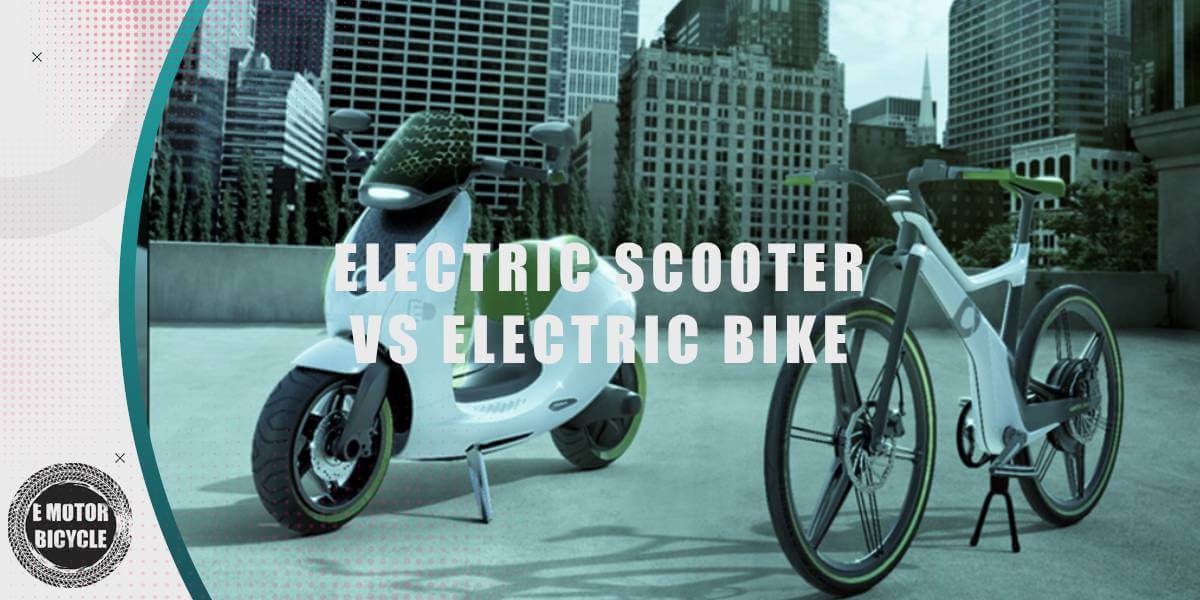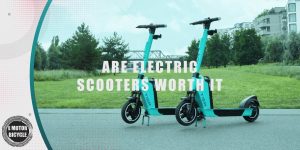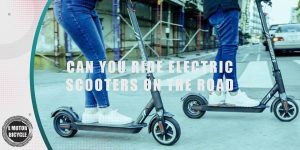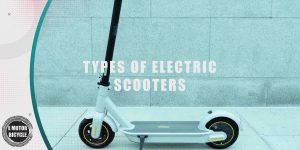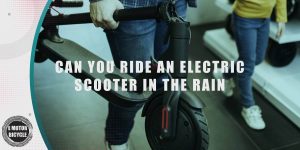If you, like me, live in a busy big city where the speed of getting to your desired point depends on the amount of traffic, then you’ve come to see me for a reason. In the modern world, it is difficult not to ask questions about acquiring ergonomic means of transportation. Accordingly, this is where the electric scooter vs electric bike confrontation comes into play.
I do not believe that there are many people with the same tastes, but I am sure that I can highlight some of the main factors influencing your decision to lean towards the first or second option. Either way, it’s about ease of transportation, comfort, economy, and preserving the environment.
Performance factors
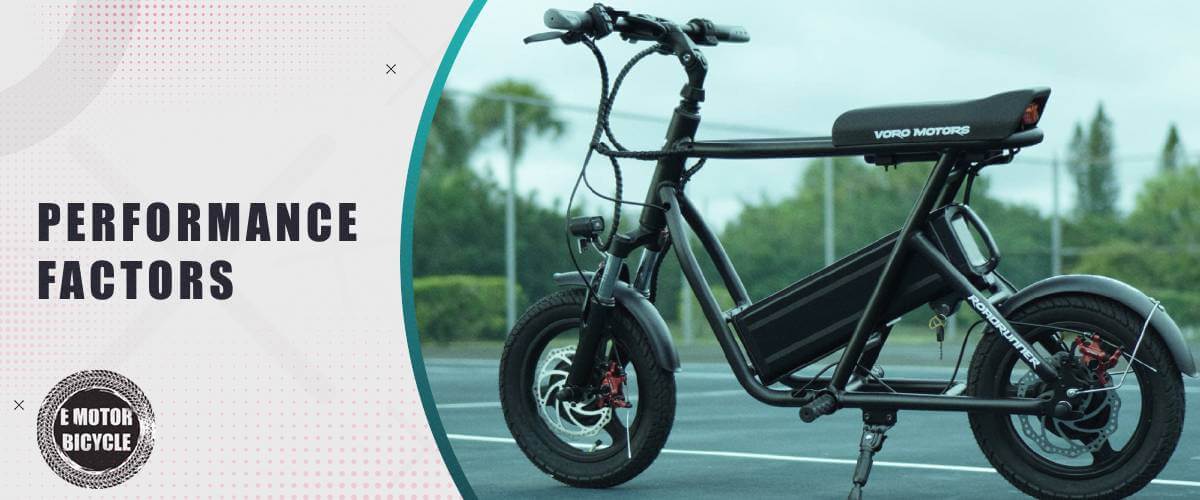
Speed
When it comes to speed, electric scooters and electric bikes have slightly different characteristics. Electric scooters are known for their agile acceleration and ability to whiz through city streets easily. But in my experience, it’s more about maneuverability. On the other hand, electric bikes have a more consistent speed, making them suitable for long commutes and entertainment. And this, from experience, is not so important when it comes to crowded city streets.
So, let’s say, in specifically congested traffic, speed is not as important. But generally, bikes (most models) are faster regarding out-of-town trips.
Range and battery life
The range and battery life of these types of transportation can be a fundamental factor when deciding whether to choose an electric bike or an e-scooter. Electric bikes have an advantage here, as their batteries have a larger capacity. This can be useful for those who have to make long daily commutes or those who want to explore wider areas without worrying about recharging.
On the other hand, if your scooter is portable, you can recharge it during the work day, and it has enough charge for at least a one-way trip, then the issue isn’t worth paying too much attention to.
Terrain and climbing capability
The terrain on which these electric vehicles operate can significantly impact their performance. Electric scooters with a compact design are great for navigating crowded city streets, so they prefer the flat terrain of paved streets. And the portability of a scooter can be useful when you can not overcome a certain hill. However, there are models designed for off-roading.
Electric bikes with sturdy construction are better able to handle different types of terrain, including uphill climbs and uneven paths. Your comfort is probably more important here – how tired you get when standing on the scooter deck or whether you prefer to pedal periodically.
Portability and convenience
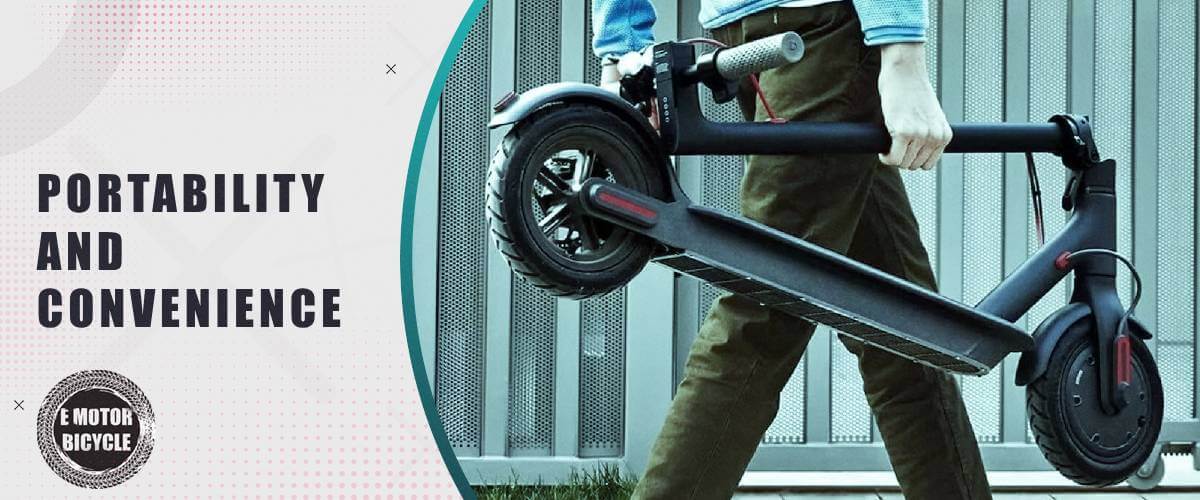
Weight and folding mechanisms, storage and transportability
Portability is a key factor for many commuters. Lightweight and often foldable, electric scooters are easily transported on public transportation or stored in compact spaces. Electric bikes, while less portable due to their size, can have folding mechanisms for easier storage. When choosing a particular vehicle, consider nuances such as transportability (elevators, stairs) and storage when not in use. There were times when I regretted that I did not go by metro and had to deal with organizing a place, even for a scooter, let alone a bike.
Comfort and convenience
Going back to the comfort issue again (although somehow everything revolves around it), I would say that electric scooters are more intuitive and simple but designed for short distances, at least considering you have to stand on them. With their more robust design and different riding modes, electric bikes are more comfortable for longer rides since you’re seated and can always take a break from pedaling.
So basically, it all comes down to exactly what you need to carefully consider: purpose, distance, transportation options (to the office), storage, and the sheer convenience of being on a bike or scooter.
Safety

Safety is paramount for any form of transportation. Both electric scooters and bicycles are equipped with safety features such as lights and brakes, but the driver’s experience and adherence to the rules of the road play a crucial role in ensuring a safe ride. Electric bikes can better handle all kinds of obstacles (curbs, small stones, and potholes in the road). Still, a scooter will give you more maneuverability and portability, which means carrying it in difficult places.
Price range
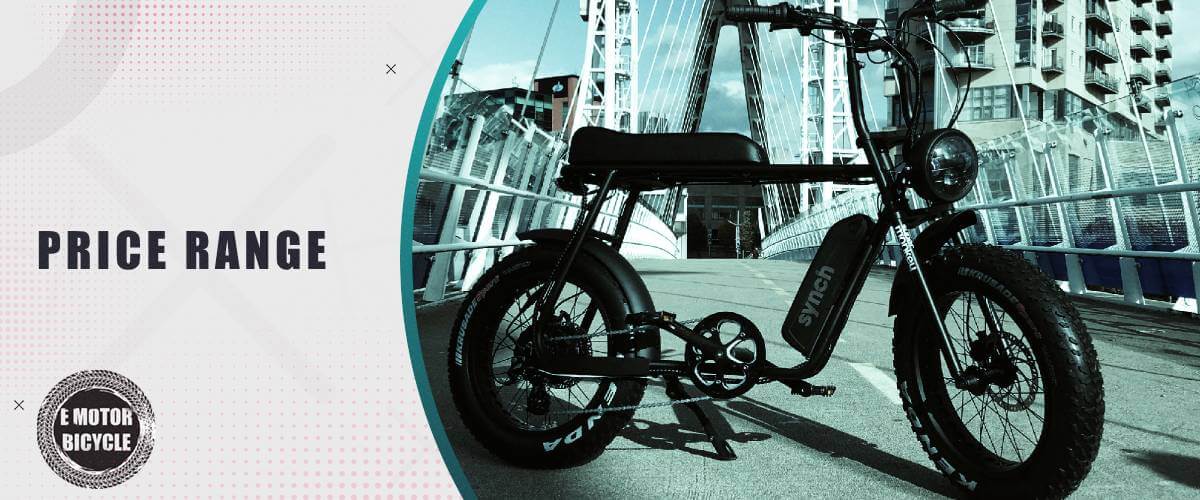
In terms of price, electric scooters tend to be more budget-friendly compared to electric bicycles. This cost difference can affect the decision-making process of potential buyers, especially those looking for an economical and eco-friendly commuting solution. However, if you take your time, study the market, and determine your needs, you can find both a fairly powerful and expensive (within $1,000-$2,000) electric scooter and a fairly simple and inexpensive (around $500-$1,000) electric bicycle.
Conclusion
Although your choice will come down to purely individual preferences, and the pleasure of riding will depend on your skills and capabilities, I still consider the electric scooter a more acceptable option for transportation in urban conditions. It is more comfortable, lighter, easier, and more maneuverable. But the limits of decency require me to be objective, so I fully realize that there will be those who love bicycles since their virginity, and therefore, will give their preference to them. Well, it’s up to you to decide! What matters is the joy of use.

